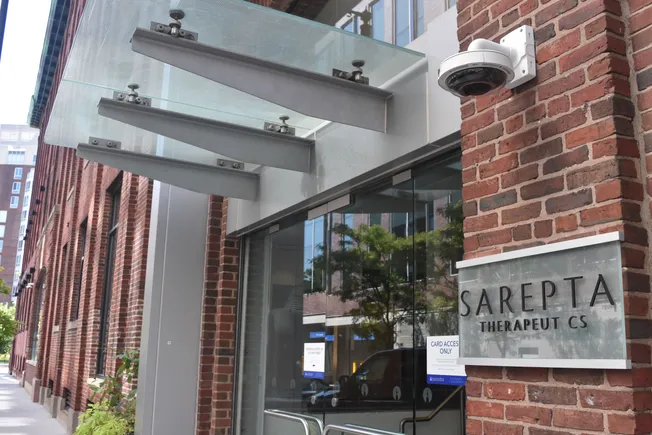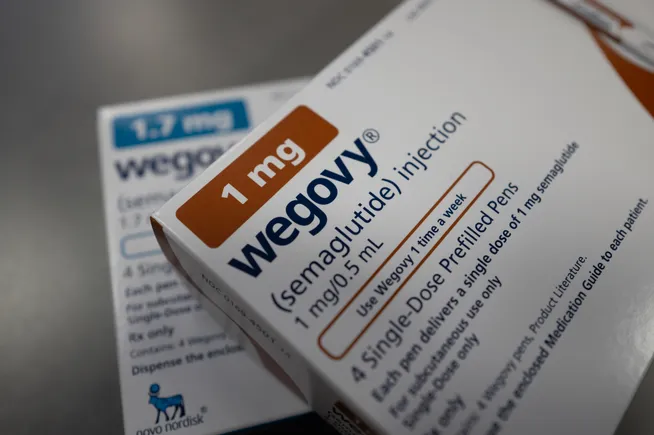Sarepta rebuilds drug pipeline with Arrowhead deal


Dive Brief:
- Sarepta Therapeutics has turned to dealmaking to restock a drug pipeline analysts worried was growing thin, announcing Tuesday a deal with Arrowhead Pharmaceuticals that will give it four clinical-stage treatments and three others still in preclinical testing.
- In return, Sarepta will pay Arrowhead $500 million upfront and spend another $325 million to buy Arrowhead shares at a premium to the stock’s weighted average over the past month. Sarepta will also send Arrowhead $50 million a year for the next five years.
- Under the deal, Arrowhead will complete the Phase 1/2 trials underway for the four clinical-stage drugs, after which development will transition to Sarepta. Arrowhead will hand over responsibility for the preclinical programs after wrapping up preparatory work for human testing. Finally, Sarepta will also hold rights to nominate an additional six drug targets for Arrowhead to develop potential candidates against.
Dive Insight:
In doing a deal with Arrowhead, Sarepta is buying into a drugmaking technology that analysts view as complementary to its prior work with genetic medicine.
Arrowhead specializes in RNA interference, a way of muting gene expression by using small, interfering strands of RNA, or siRNA. The technology has been advanced furthest by Alnylam Pharmaceuticals, which developed five RNAi drugs that are now approved in the U.S. But those medicines are largely limited to diseases of the liver and other companies, like Arrowhead, have worked on ways to design RNAi therapies that can reach other tissues.
The four clinical-stage medicines Sarepta gains via the deal treat diseases of the muscle, central nervous system and lungs. Two are aimed at muscular dystrophies — long the focus of Sarepta’s drug development. The three preclinical assets, meanwhile, are all designed to treat conditions of the central nervous system.
“Robust and compelling early data from Arrowhead’s differentiated siRNA approach platform suggests potentially best-in-class treatments that will profoundly improve the lives of those with rare, genetic diseases,” said Louise Rodino-Klapac, Sarepta’s chief scientific officer and head of research and development, in a company statement.
Analysts largely viewed the deal as a positive step to build up Sarepta’s pipeline, which the company recently shrank by discontinuing a successor to its approved medicine Exondys 51 and the drugmaking platform from which it was built.
“This collaboration should mitigate concerns about Sarepta’s thin pipeline — which has been a key overhang — and provide multiple avenues of additional growth drivers going forward,” wrote Mizuho Securities analyst Uy Ear in a note to clients.
Sarepta also disclosed that its board had authorized repurchasing up to $500 million in company shares over the next 18 months, another step investors had sought.
“Investors who we spoke to wanted to see [Sarepta] 1) bring in new assets and 2) buy back shares: today’s announcement checks both boxes,” wrote Kristen Kluska, an analyst at Cantor Fitzgerald, in an investor note Tuesday.
Sarepta held nearly $1.4 billion in cash, cash equivalents and liquid investments as of Sept. 30. Sales of the company’s gene therapy for Duchenne muscular dystrophy, Elevidys, have also increased and are expected to climb higher — giving Sarepta a rising revenue base to fund development of the candidates it’s now taking on.
“We do not believe this deal implies the Elevidys launch has fallen off track,” wrote Danielle Brill, an analyst at Raymond James, in a client note. “In fact, the willingness to pay so much upfront tells us management remains comfortable with their cash flow outlook.”
This post has been syndicated from a third-party source. View the original article here.




